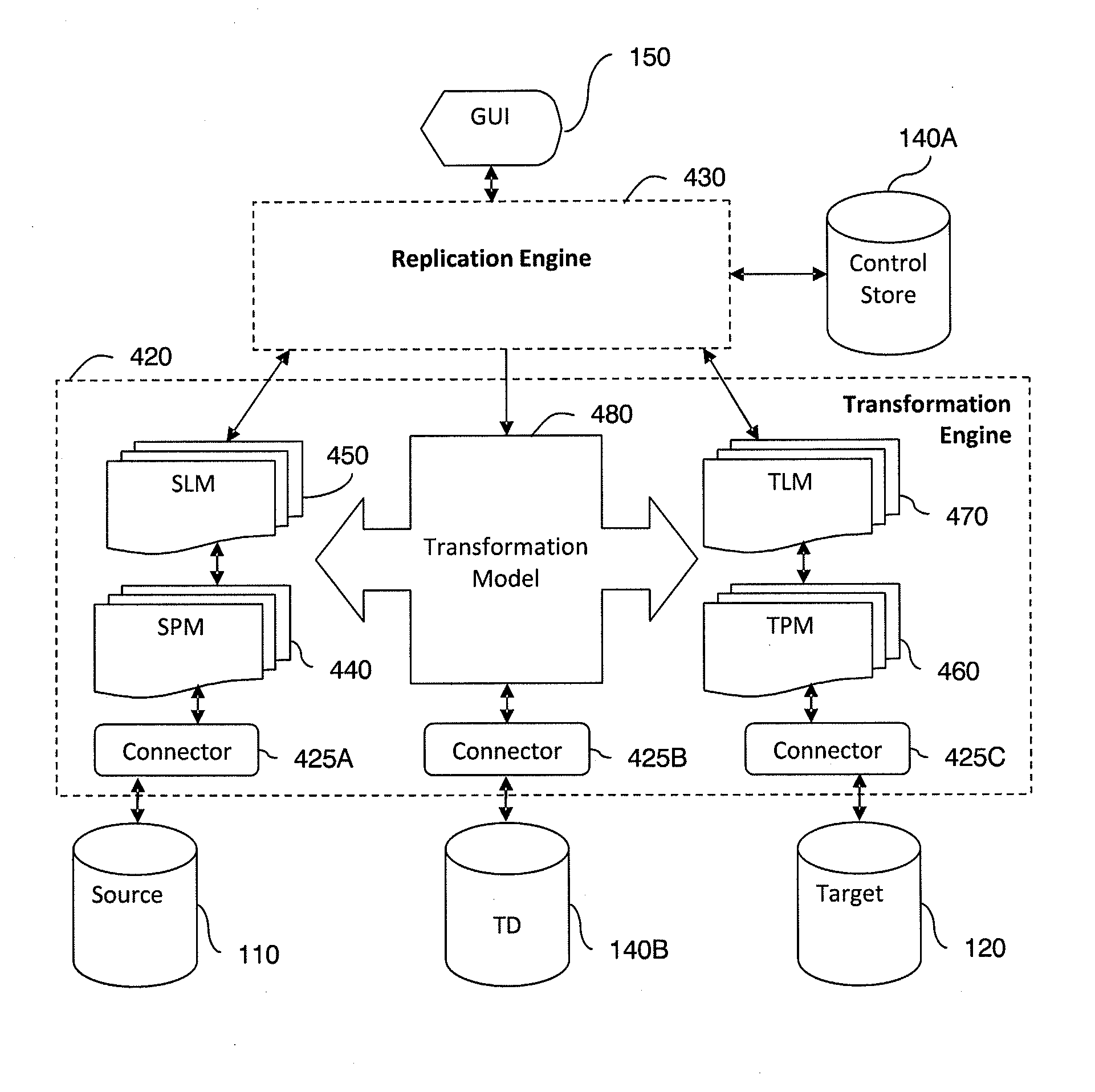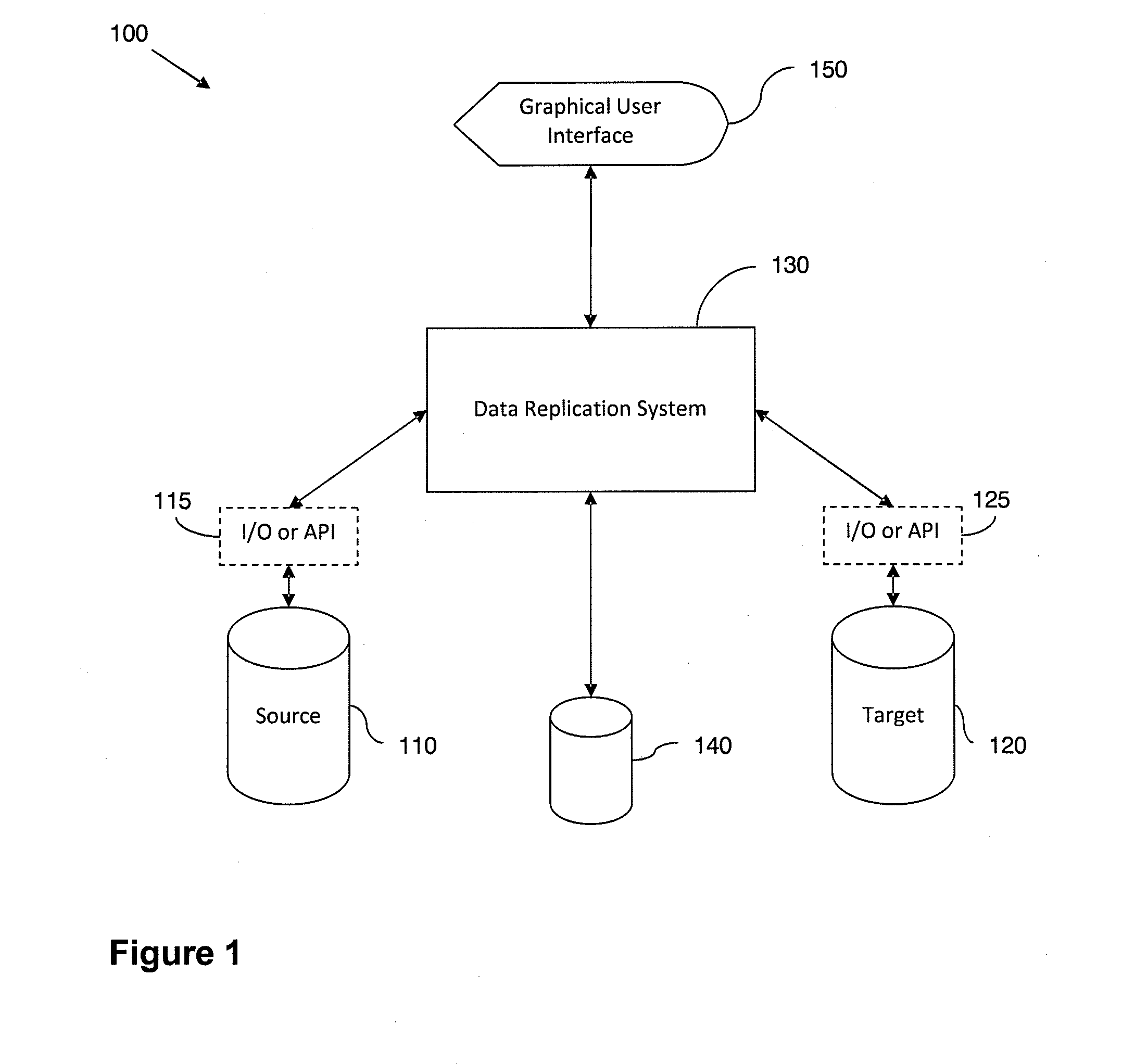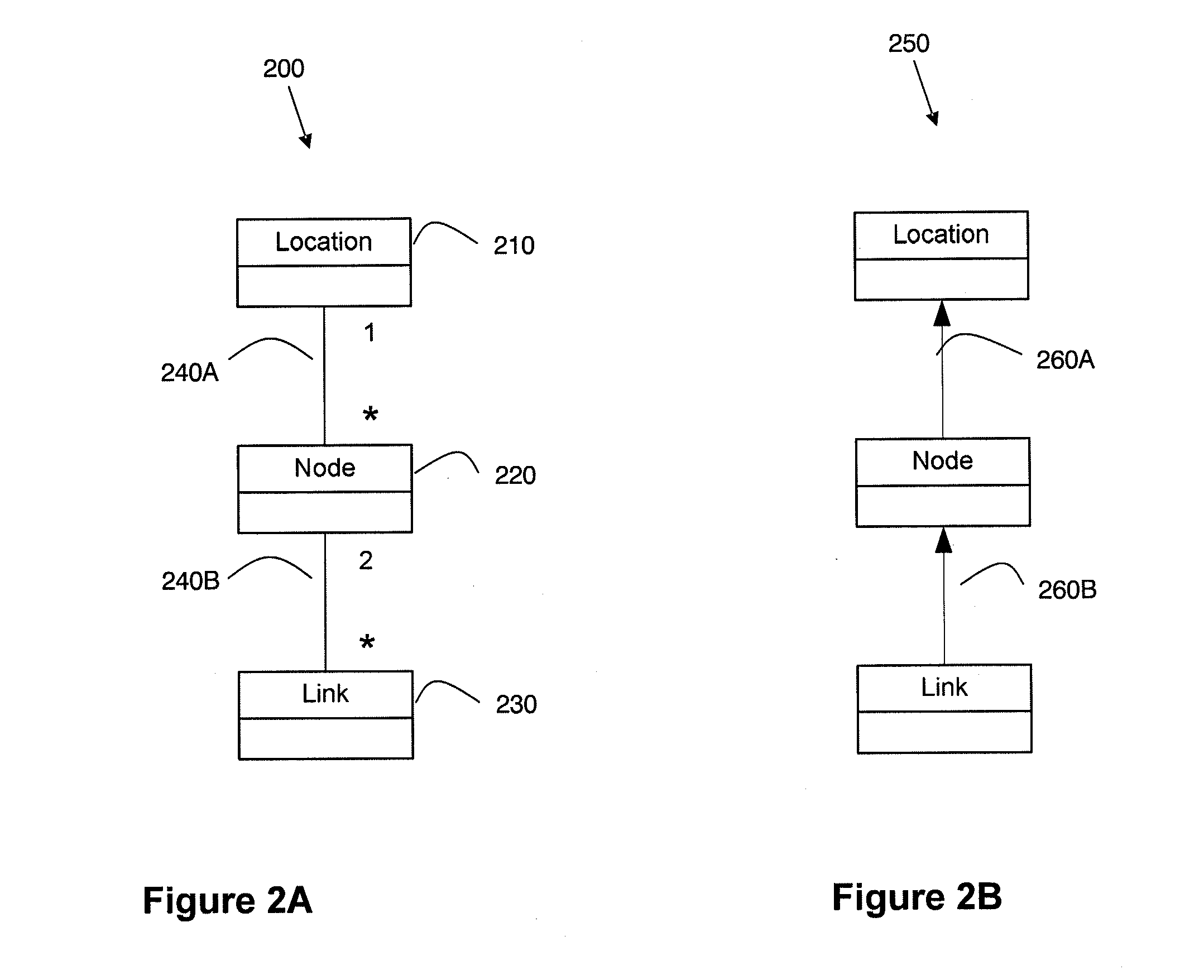Error prevention for data replication
a data replication and error prevention technology, applied in the field of data replication, can solve the problems of data migration process being prone to errors, affecting the accuracy of data replication, and reducing the risk of ‘fallout’
- Summary
- Abstract
- Description
- Claims
- Application Information
AI Technical Summary
Benefits of technology
Problems solved by technology
Method used
Image
Examples
Embodiment Construction
[0071]FIG. 1 shows an exemplary data replication system 130. The data replication system 130 is couplable to a source 110 and a target 120. The source 110 and target 120 may comprise one or more databases or other data storage systems. The data replication system 130 may also optionally be adapted to process a source 110 and / or target 120 comprising flat files. The source 110 and / or the target 120 are preferably accessed through respective input / output (I / O) interfaces 115 and 125. These interfaces 115 and 125 may comprise one or more application interfaces (API) that allow access to data stored within an application. These interfaces may comprise any mixture of Structure Query Language (SQL), Open Database Connectivity (ODBC), Java Database Connectivity (JDBC) or proprietary interfaces. The interfaces may be implemented using any known programming language, including but not limited to, Java, C++, and .Net. In certain embodiments, for example when using flat files, there may be a m...
PUM
 Login to View More
Login to View More Abstract
Description
Claims
Application Information
 Login to View More
Login to View More - R&D
- Intellectual Property
- Life Sciences
- Materials
- Tech Scout
- Unparalleled Data Quality
- Higher Quality Content
- 60% Fewer Hallucinations
Browse by: Latest US Patents, China's latest patents, Technical Efficacy Thesaurus, Application Domain, Technology Topic, Popular Technical Reports.
© 2025 PatSnap. All rights reserved.Legal|Privacy policy|Modern Slavery Act Transparency Statement|Sitemap|About US| Contact US: help@patsnap.com



